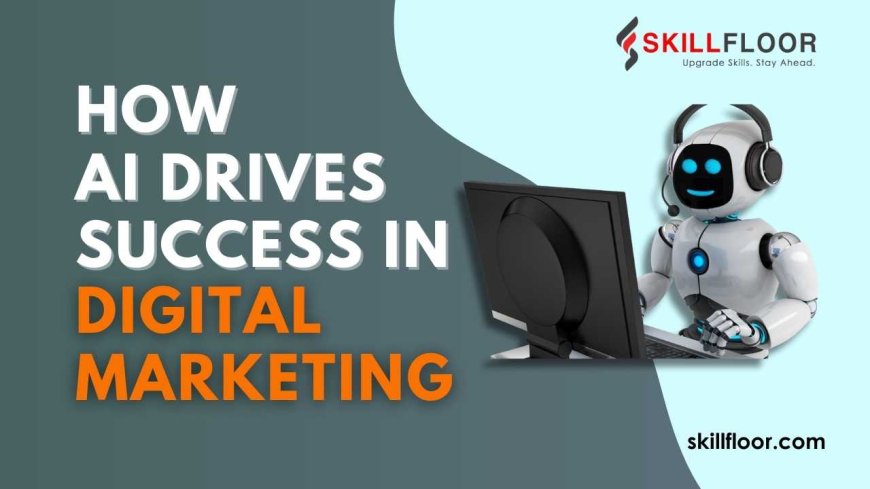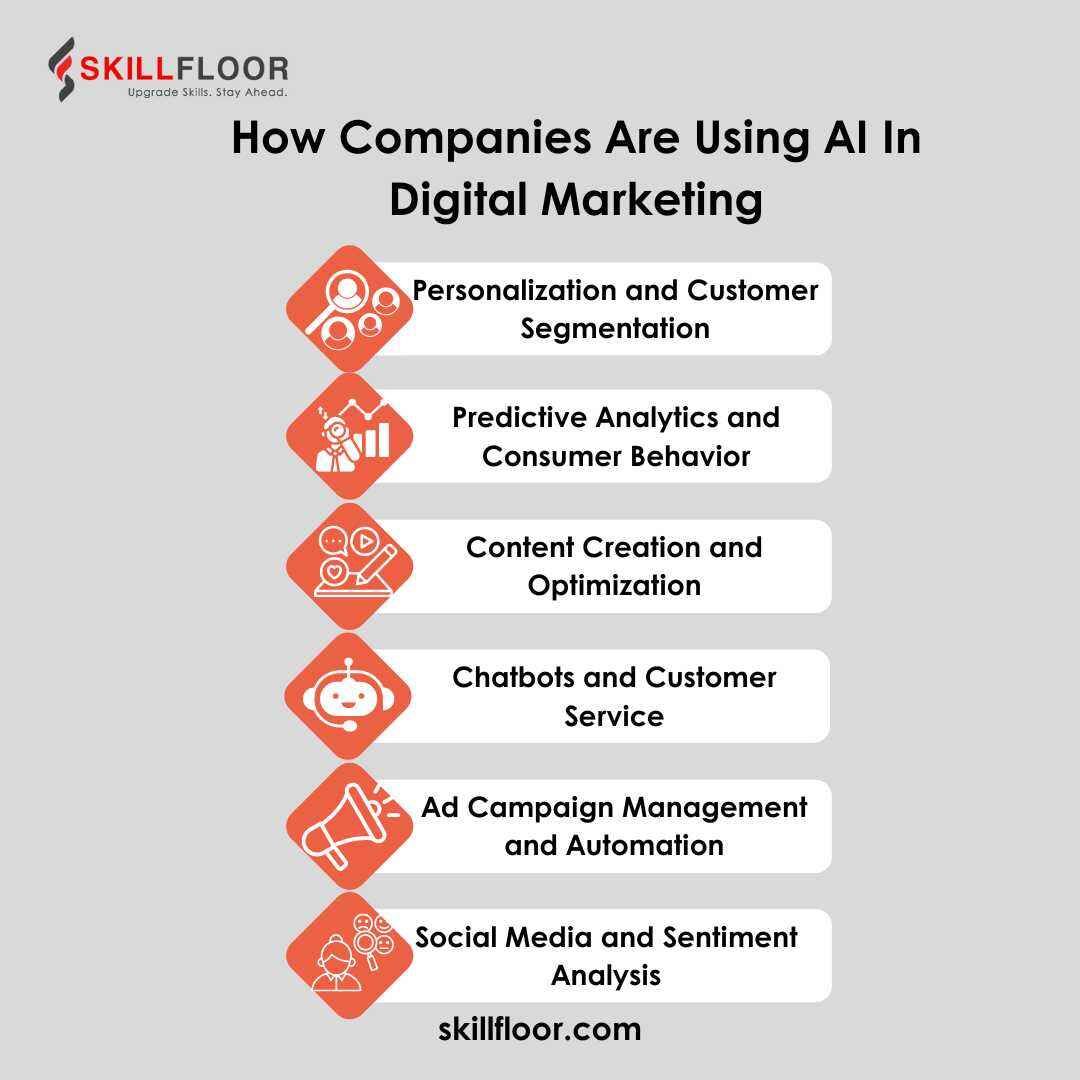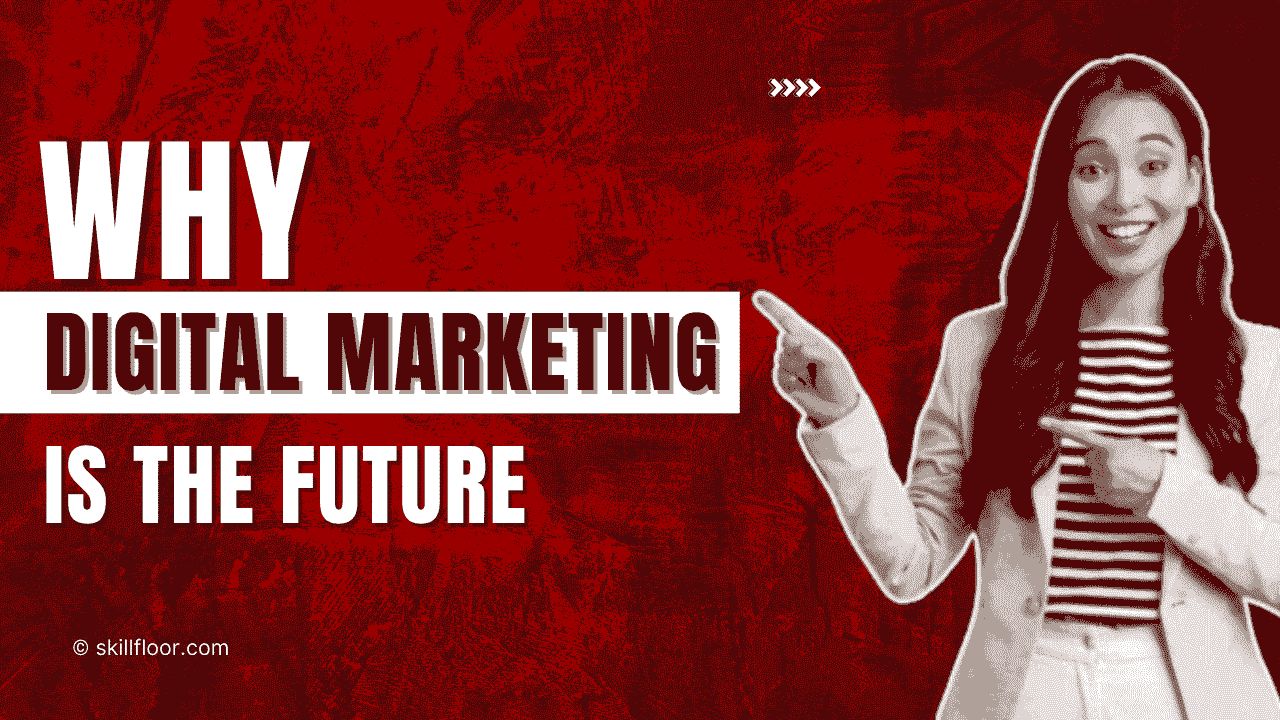How AI Drives Success In Digital Marketing
Discover How AI Drives Success In Digital Marketing by enhancing strategies, optimizing campaigns, and improving customer engagement for better business outcomes.

Businesses have been using more and more AI for digital marketing in recent years to improve customer service and improve their marketing approach. The expanding trend of using AI technologies to customise content, predict customer behaviour, and enhance ad campaigns is discussed in How Companies Are Using AI in Digital Marketing. Businesses can more effectively segment customers and personalize their communications by integrating AI into digital marketing. AI-powered solutions also facilitate the creation and optimization of content, which helps marketers meet SEO standards and increase engagement rates. Other ways companies are using AI in digital marketing are through the use of chatbots for customer care and sentiment analysis on social media. The ongoing advancement of technology offers new chances for automation and efficacy, rendering artificial intelligence (AI) in digital marketing an important component of modern marketing strategies. Examining these cutting-edge strategies shows how businesses are utilizing AI in digital marketing to remain ahead of the competition.
Understanding AI in Digital Marketing
Let's first define what artificial intelligence (AI) in digital marketing entails before getting into the specifics. A variety of technologies, like machine learning, natural language processing, and data analytics, are included in artificial intelligence (AI), that help marketers understand and forecast customer behavior. With the help of this powerful combination, brands can develop more successful marketing plans, enhance consumer experiences, and eventually increase conversion rates.
Personalization and Customer Segmentation
Personalization is one of the most fascinating uses of AI in digital marketing. Imagine browsing through products in an online store that appears to be customized particularly for you. That's how AI-powered personalization works. AI can divide consumers into extremely narrow categories according to their preferences, actions, and demographics by evaluating enormous volumes of data. This implies that marketers can tailor emails to specific consumer segments, make product recommendations, and even design distinctive landing pages.
For example, by analysing viewing patterns, Netflix makes show recommendations based on user preferences. This degree of customization keeps users interested and devoted to the platform while also improving the user experience. Businesses in the e-commerce space, such as Amazon, use AI to recommend products based on past purchases and browsing history, significantly boosting sales and customer satisfaction.

Predictive Analytics and Consumer Behavior
In digital marketing, knowing customer behaviour is revolutionary, and artificial intelligence is essential to this process. With the help of AI-powered predictive analytics, marketers can predict future trends and behaviours with remarkably high accuracy. Artificial Intelligence (AI) can forecast which goods or services a consumer is likely to be interested in when they are likely to make a purchase and even the ideal moment to send marketing messages by examining past data and finding trends.
For example, Retailers might use predictive analytics to decide which products to stock up on at different times of the year so they can satisfy customer demand without going overboard. This ensures that popular products are available, improving consumer experience and optimising inventory management.
Content Creation and Optimization
The basis of any effective digital marketing plan is the creation of compelling content. However, regularly creating content of this kind can be a challenging task. Here come tools for content generation and optimization powered by AI. Based on particular keywords and topics these programs can produce blog segments, social media updates, and even screenplays for videos.
Consider Grammarly, an AI-powered writing tool that helps users produce understandable and error-free material. Grammarly offers recommendations for improving grammar, style, and readability by examining the text's context and intent. In the same way, AI solutions such as MarketMuse and Clearscope help marketers optimize their content for search engines so that it appears higher up and gets seen by more people.
Chatbots and Customer Service
In the constantly changing digital environment, customers expect quick responses to their questions. This is where chatbots powered by AI become useful. Chatbots are virtual assistants that are available around the clock to answer questions from clients, offer information, and even help with transactions. Chatbots are capable of understanding and reacting to customer queries in a human-like way using machine learning and natural language processing.
Chatbots are used by retailers such as H&M and Sephora to provide individualized shopping support and aid customers in finding products that match their tastes. Additionally, by gathering useful customer information, these chatbots can enhance customer service and improve marketing strategies.
Ad Campaign Management and Automation
Ad campaign management can be a difficult and time-consuming task. However, by automating several ad campaign management tasks, AI has made this process easier. To maximize return on investment, AI systems may evaluate data from prior campaigns, spot trends, and adjust ad placements in real time.
For instance, AI is used, by Google ads to automatically target audiences and change bids in response to performance data. This increases the chance of conversion by ensuring that ads are displayed to the most relevant users at the right time. AI can also be used to create dynamic ad content, which adapts to user behaviour to improve the effectiveness and engagement of advertisements.
Social Media and Sentiment Analysis
AI is the key to releasing the customer insights hidden within social media networks. By analyzing social media posts, comments, and reviews, sentiment analysis powered by artificial intelligence enables marketers to determine how the general public feels about their company, goods, or services. It helps in measuring consumer mood and identifying areas in need of development.
Artificial intelligence (AI) is used by programs like Hootsuite and Brandwatch to track social media conversations and provide real-time customer opinion information. Businesses may customize their marketing messaging to address issues, highlight advantages, and create stronger connections with their audience by understanding how customers feel about their brand.
In conclusion, artificial intelligence (AI) in digital marketing is changing how companies interact with their customers by personalizing interactions, improving customer support, simplifying content, and conducting more effective ad campaigns. Businesses may better understand and anticipate customer actions by using AI technologies like machine learning and natural language processing. This can ultimately result in more effective marketing campaigns and increased client satisfaction.


























































